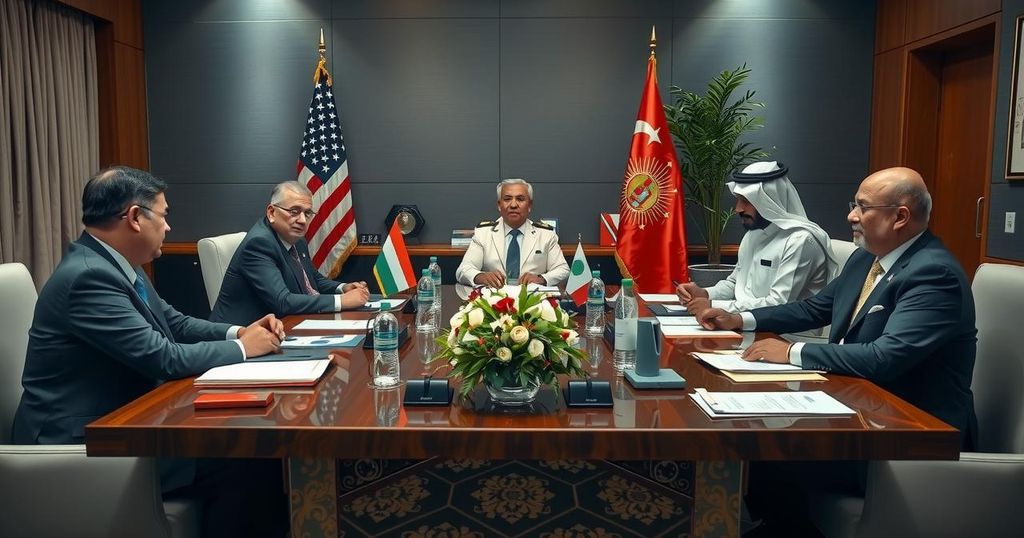Professor Yunus Engages with Global Leaders at COP29 on Climate Action
Chief Adviser Professor Muhammad Yunus met with several global leaders, including Prime Ministers and Presidents, at COP29, which focuses on addressing climate change challenges. The meetings took place in Baku, emphasizing the need for international cooperation in tackling this global crisis.
On November 12, Chief Adviser Professor Muhammad Yunus engaged in discussions with multiple world leaders during COP29, the United Nations’ largest climate conference held in Baku. His meetings included notable figures such as Prime Ministers Daniel Risch of Liechtenstein and Tshering Tobgay of Bhutan, as well as President Mohamed Muizzu of the Maldives and President Denis Becriovic of Bosnia and Herzegovina. Additionally, Professor Yunus had a significant interaction with President Sheikh Mohamed bin Zayed Al Nahyan of the United Arab Emirates (UAE). These interactions highlighted the collaborative spirit of the summit, aimed at combating the escalating challenges posed by climate change, particularly in a region historically associated with the oil industry.
The annual climate summit, COP29, serves as a crucial forum for global leaders to discuss strategies to mitigate the impacts of climate change. Convened in Baku, Azerbaijan—a city linked to the origins of the oil industry—the conference presents a unique opportunity for dialogue and action on pressing environmental issues. Chief Adviser Professor Muhammad Yunus’s participation underscores the importance of international cooperation as nations seek solutions to the urgent climate crisis, aiming to foster sustainable development and environmental stewardship.
In summary, Professor Muhammad Yunus’s participation in COP29 exemplifies the critical engagement of global leaders in addressing climate change. His discussions with heads of state, including the UAE, Maldives, and Bosnia, reflect a shared commitment to finding innovative solutions to an urgent global challenge. As the summit continues, it remains essential for nations to collaborate closely in their efforts to safeguard the environment for future generations.
Original Source: www.tbsnews.net




Post Comment